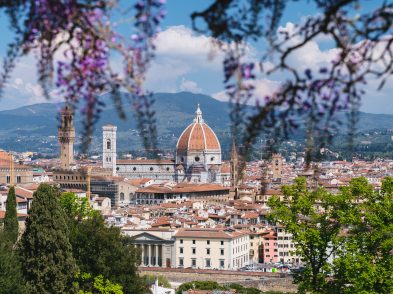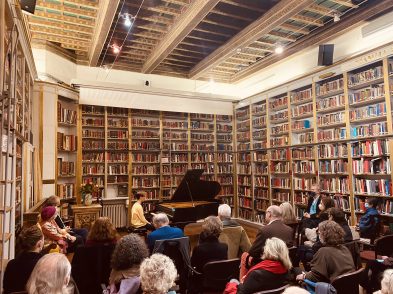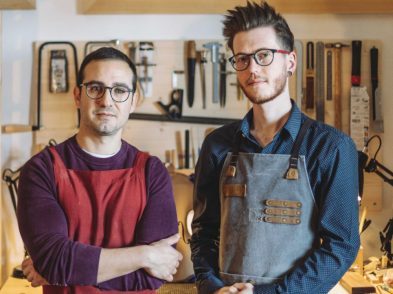There is so much beauty that surrounds us in Italy, whether it be the breathtaking beauty from the rolling hills to the sea; the millennia of arts and architecture that are jewels in the ancient crown of humanities’ most glorious accomplishments; the inventive creativity and resources, from banking to the world’s finest foods; and a way of life that is both thrilling and dreamy. How many times have we heard in our travels around the world: “If only I could live in Italy!” We complain about bureaucracy, but those of us who live here would never choose to live anywhere else. Regardless of whatever operatic drama might be happening at the moment, there is an underlying sense of family that binds all Italians, even when traditions from one village to the next can be so vastly different. I have often wondered about what binds Italians from north to south in ways that are so particular. A personal and unexpected experience led to the opening up of a particular Italian world that can be so often taken for granted, yet, having been given an insider’s view, is one of the country’s greatest unifiers.
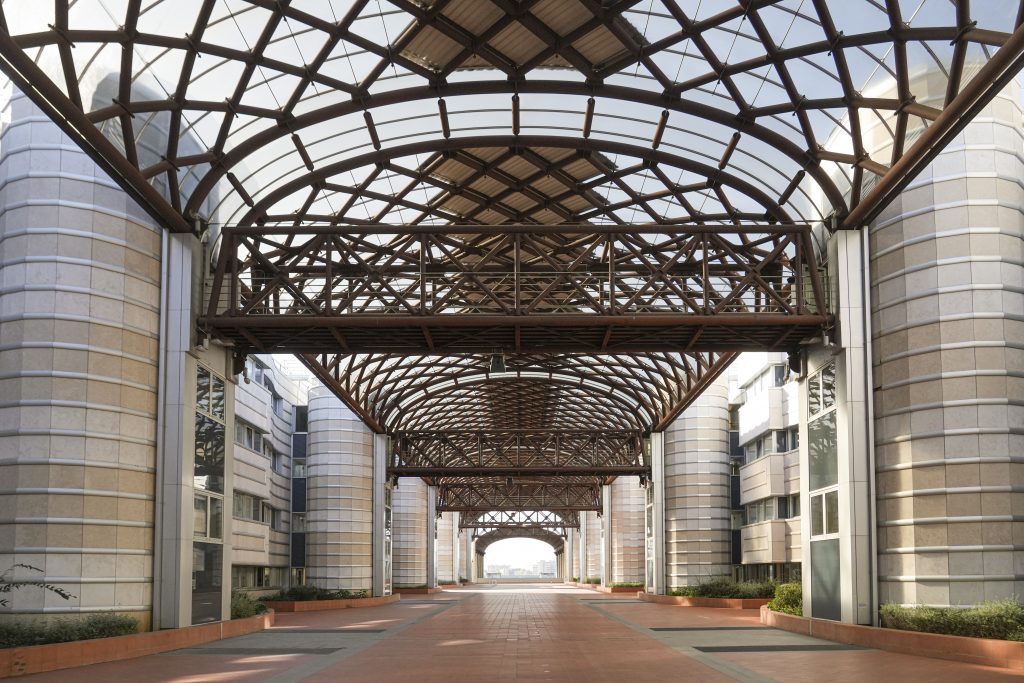
When I first arrived at my new home in Tuscany six years ago, one afternoon there was a knock at the door, and three well-appointed men in elegant dark blue uniforms with red stripes introduced themselves as the local Carabinieri. Oblivious as I was at the time, I asked them if there was something wrong and what would they like to know. The three responded that they were alerted to the fact that we were the new neighbors and they wanted to introduce themselves in case we needed any help. Granted, this isn’t standard practice for anyone who moves in, but our house is in an isolated spot and a few years before our neighbors had been victims of burglary. Ever since, the Carabinieri, who I assumed were the local police, made a point of knowing who was around. They invited me to see their offices in the centre of town. I invited them for afternoon coffee and biscotti. The exchange was on a personal level. I soon discovered that Carabinieri are very personable throughout all of Italy. They seemed like nice policemen, which might sound reductive, but in time I came to find out a whole lot more.
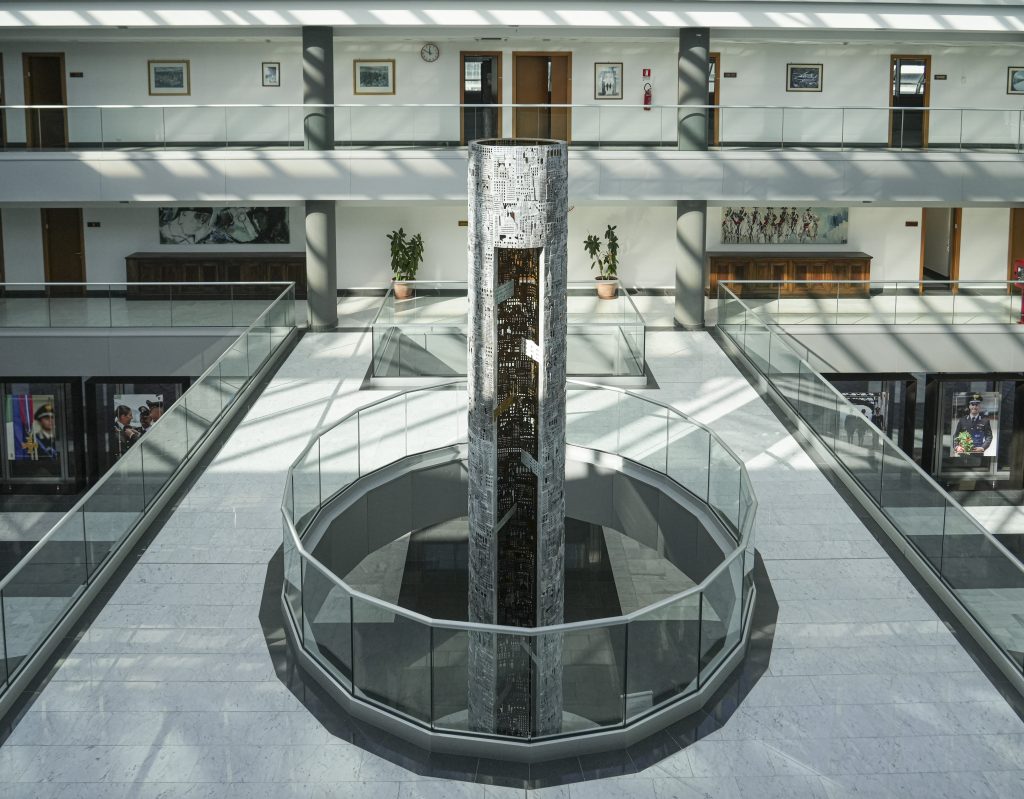
Several years later, I encountered a local story about three Carabinieri in Fiesole, who chose to give their lives to save ten Italian civilians during the Nazi occupation. The law back then was that if a Nazi was killed, ten Italian civilians would be killed as retribution. Alberto Larocca, Vittorio Marandola and Fulvio Sbarretti, a mere 20 and 22 years old, made the unilateral decision to offer their lives in exchange for the ten civilians to be released. I learned that there were other such stories, like one vice brigadiere Salvo D’Acquisto, near Rome, who took responsibility for killing a Nazi to save civilians and was executed. I began to notice Carabinieri throughout my travels in Italy, wondering where such courage would have come from. Having shared the story of the three Carabinieri from Fiesole in an operatic story, I was introduced to Colonnello Cristiano Desideri, who is the director of the Scuola Marescialli e Brigadieri dei Carabinieri, the school for marshals and brigadiers whose headquarters are located near Peretola airport, on a street named that same Salvo D’Acquisto. I was invited to visit the caserma, the barracks, to see what student life is like for a Carabiniere.
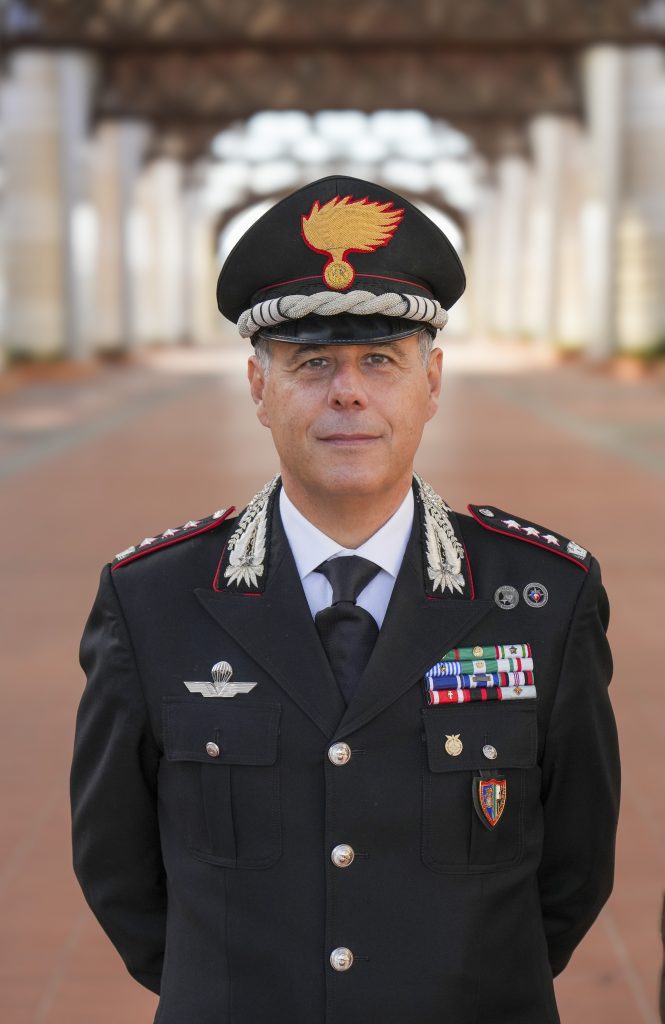
The building exterior is modern, expansive and made of light stone that warmly reflects the sun. While large, it is neither ostentatious nor revealing. One might mistake the entrance for pharmaceutical company offices or some other successful business operation, but nothing more. The street in front, while wide, is quiet. I ring a bell on a gate and a marshal escorts me through a series of metal gates and hallways to meet the Colonel. What I see next stuns and overwhelms.
I find myself bathed in light in the largest grand hallway one could imagine. A covered central courtyard exposing several floors of doorways and offices open to a massive gallery. I was suddenly reminded of one of the great halls of the Louvre given that the artworks here are also displayed in natural light. Warm and welcoming as if I were an old friend, I am greeted by Colonel Desideri, an elegantly attired man in his fifties who looks much younger. The first question I ask is about the art and the stunning structure surrounding us. “One per cent of the budget for this place has been allocated for Italian art to be displayed for the students and officers to not forget the human side,” he replies. I do my best not to show it, but I feel my throat closing and fighting back tears. The combination of the Colonel’s warmth, the overwhelming edifice, the courage of the Carabinieri of 80 years before and the commitment to art, it was almost too much. And it was just the beginning…
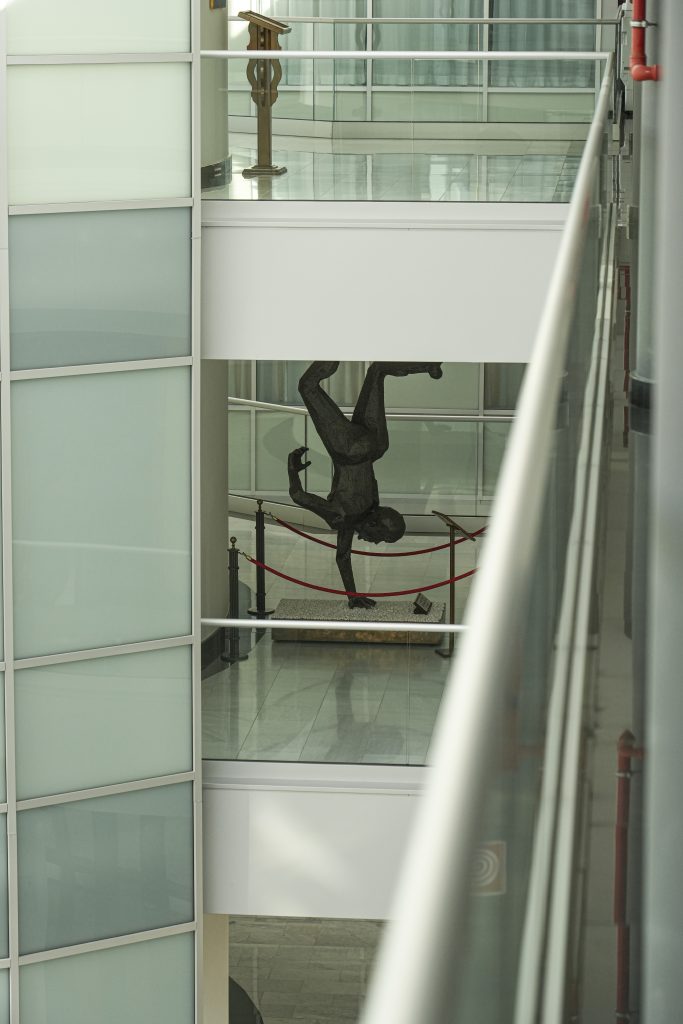
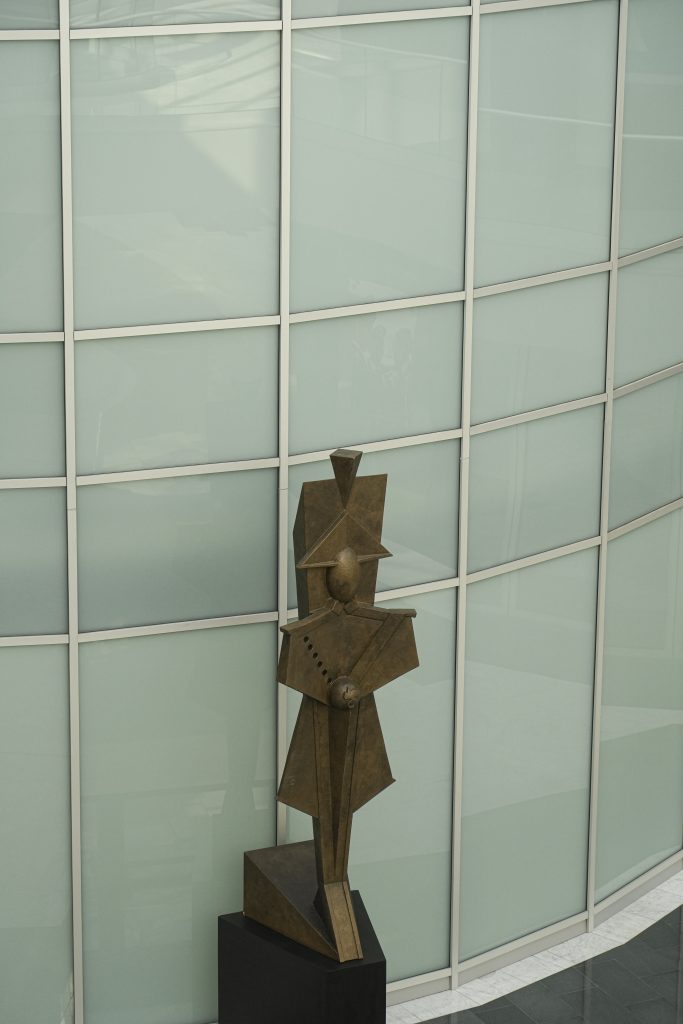
The Colonel takes me on a tour of the barracks. First through hallways and elevations and eventually outdoors to training grounds, recreation and living areas, dining halls, a bank and a post office, tailoring headquarters, the library, classrooms and practice fields… The vastness of the barracks is beginning to become apparent. This is not just a school; it’s a small city. There are some 2,200 student Carabinieri in various degrees of studies and practical exercises in a three-year program that will eventually see them graduate as marshals and brigadiers before being posted all around Italy. In fact, the Florence school is the largest of its sort in all of Europe.
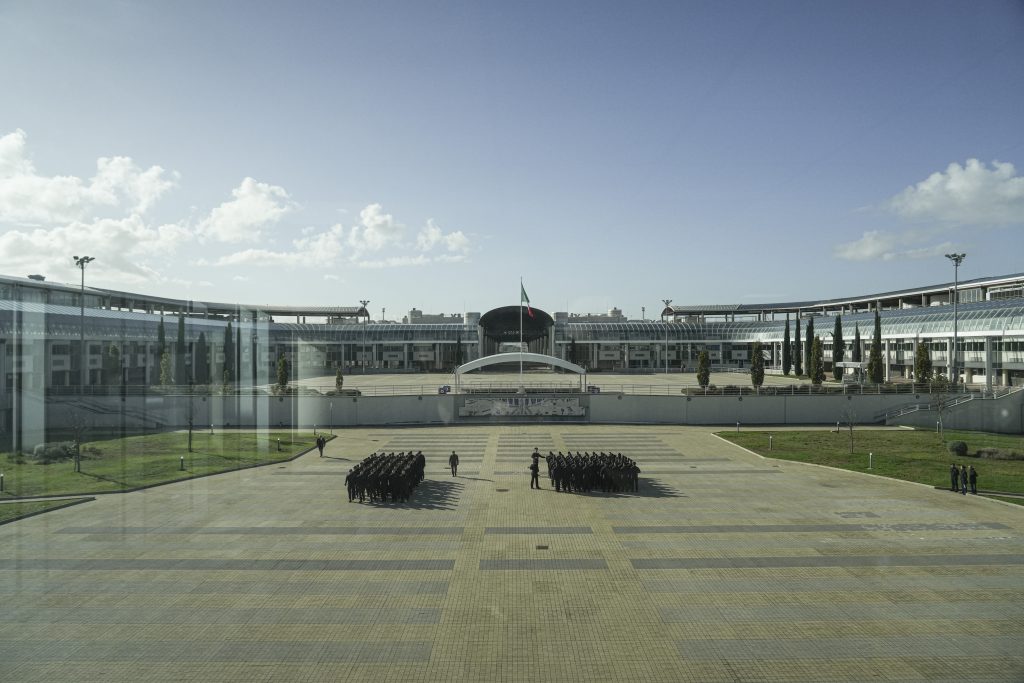
As I walked by classrooms, students were studying legal methodologies when it comes to peacekeeping and dealing with terrorism. Each student, even the professors, all impeccably dressed in the uniform appropriate to their rank and activity, saluted the Colonel with the utmost respect. While there is a clear sense of hierarchy, there is an even clearer respect among the students for each other and for their superiors. There is a code of conduct, a distinct code of civility and decency that is manifestly apparent.
As I speak further with Colonel Desideri, I begin to understand the code of ethics. The job of the Carabiniere, while a functionary of the military arm of Italy, is to protect Italian citizens and to de-escalate situations. While the function might be simply called “policing”, I learn that is in fact another job: that of the Polizia (police). While the Carabinieri are certainly taught the techniques and responsibilities of policing situations, the focus appears to be taking care of Italians. The culture seems to be that of teaching the young Carabinieri from all over Italy to be protective brothers and sisters for their fellow citizens.
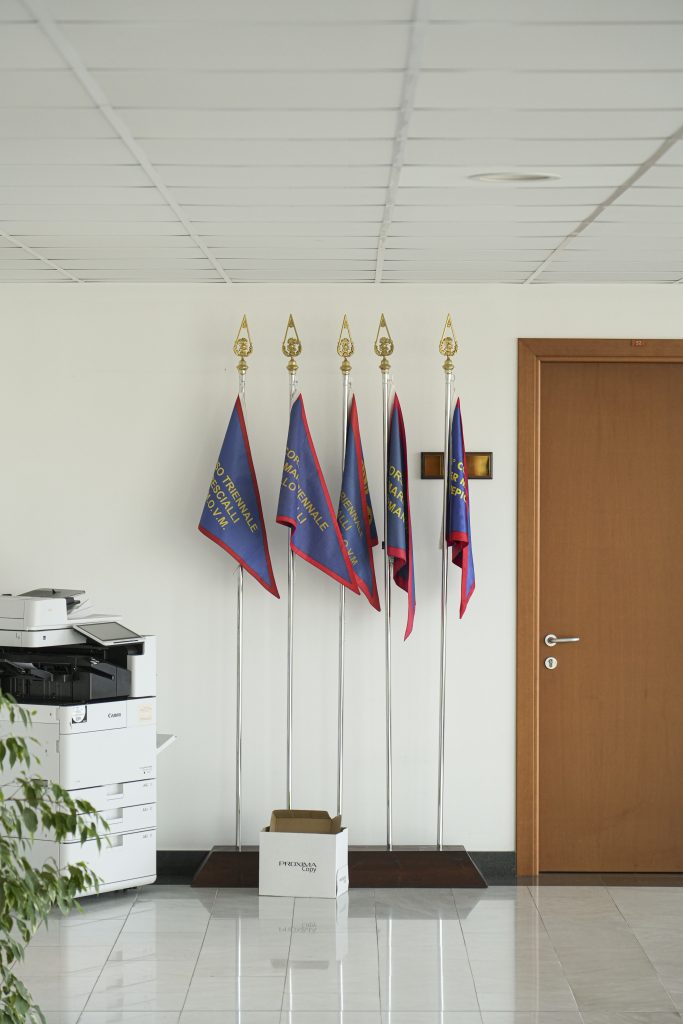
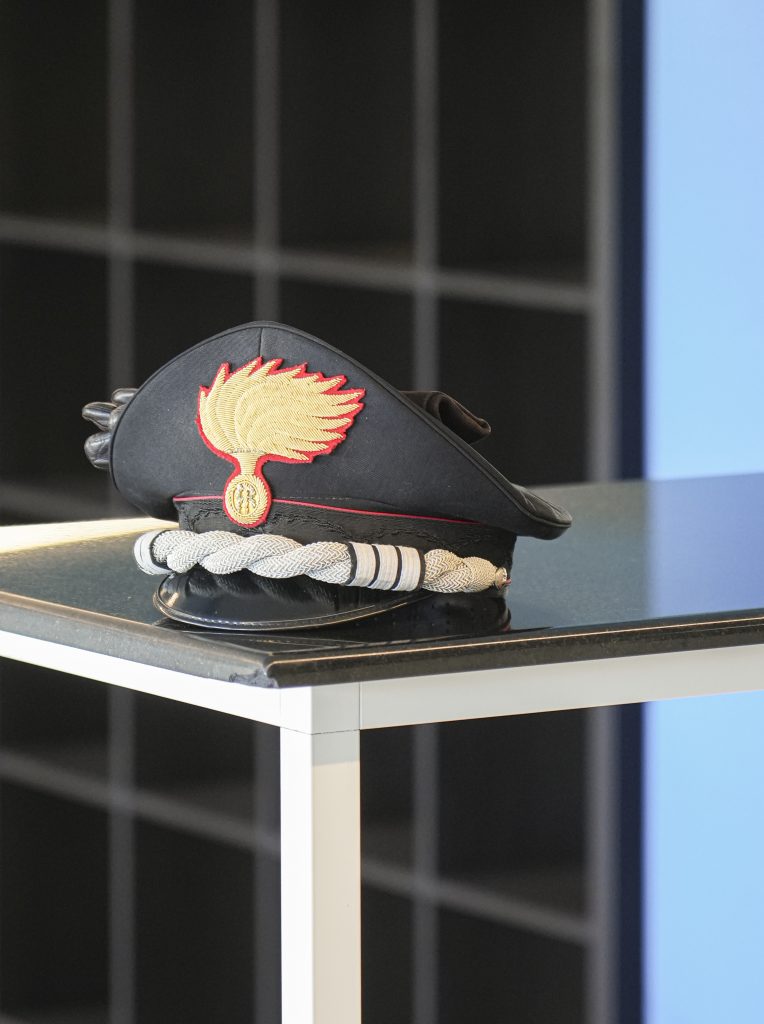
The grounds are impeccable. There are several hundred housekeepers. There is a swimming complex being built as well as a games and exercise facility. What is evident is that the students are encouraged to be human, to discuss psychology and their feelings, to think about their work and what it means. It struck me that this is what I was seeing when I experienced Carabinieri already in the field. They were a “profession,” a “title,” not merely a “mannequin”. Each and every one was an individual who was concerned about his or her fellow individual. It’s remarkable, and it is what makes the Carabinieri uniquely special.
The Carabinieri are the fourth branch of the military armed forces and under the authority of the Italian Ministry of Defence. They also police the military and function outside of Italy too. The history goes back to the early 1700s and their work ethic is styled after the French Gendarmes. Over the years, the work took several forms, but during the fascist era, the Carabinieri were one of the forces that were enlisted to suppress opposition to fascism in Italy. It says something truly deep about the ethic that it was often the Carabinieri who ended up as secret revolutionaries and partisans, taking care of their fellow citizens at all costs, and even offering their lives to save them.
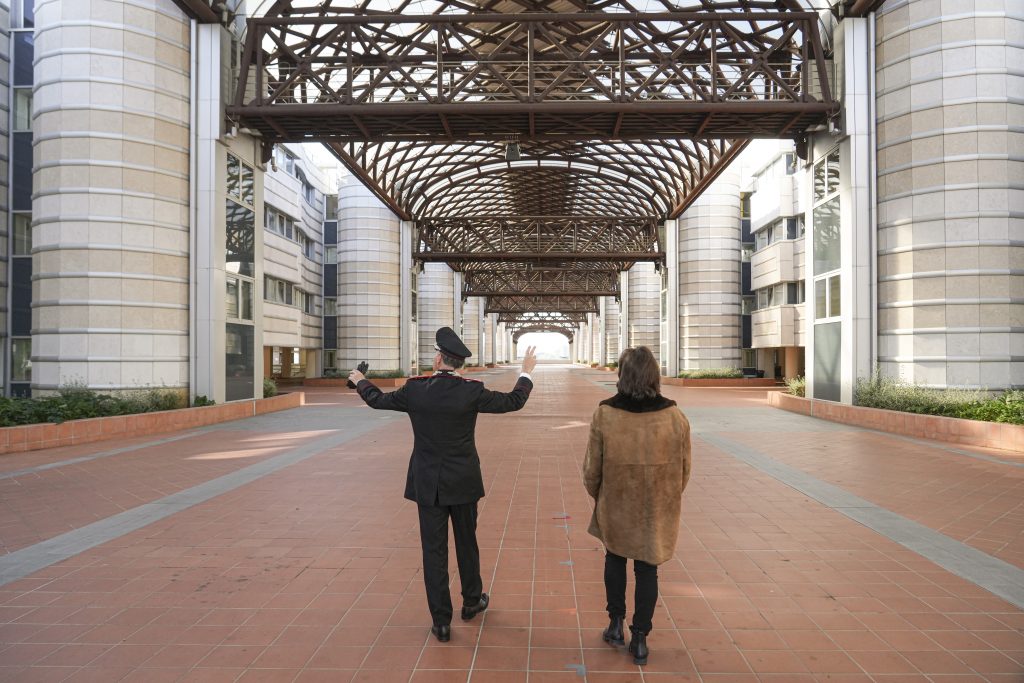
As I walked the halls with Colonel Desideri, meeting young students who will have devoted their lives to the wellbeing of Italy and the protection of its citizens, I was overwhelmed. There is so much beauty we take for granted in Italy, as if it is God’s country of art and somehow as individuals who enjoy these fine things in life, we are entitled to take part. Yet to see what goes into making the country welcoming, safe and warm is truly an experience I wish everyone could have. The individuals who keep us safe, as they protect their brothers and sisters, are a very special group of people. Ask any Italian where they would go if they needed to feel safe and each and every one would respond, “to the Carabinieri”. That tells you everything you need to know about who they are.


